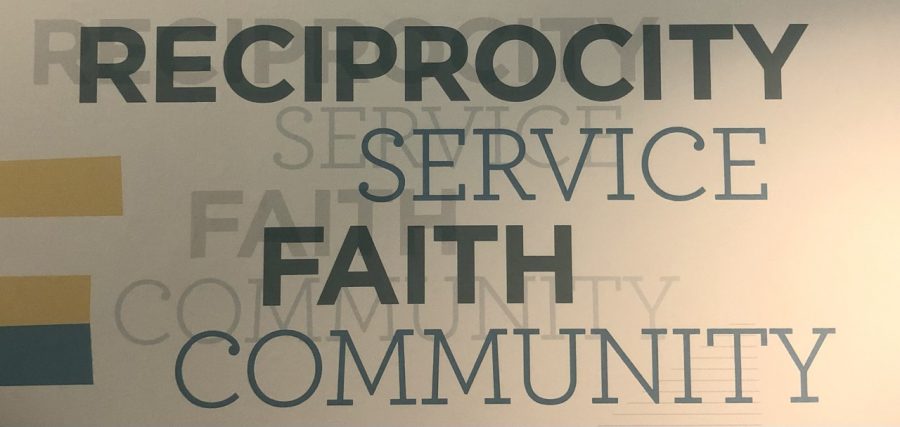For the past month, the Sexual Violence Prevention team has been teaching the Class of 2021 the importance of speaking up when someone is in danger. Each Messina class attended a presentation and was informed about how to transform from a bystander to an active leader. The heads of the team, Melissa Lees, the Sexual Violence Prevention, Education, and Response Coordinator and Program Manager for the Women’s Center, and Zach Hitchens, the assistant director of the Office of Student Support and Wellness Promotion, talked to the classes about how to develop the right skills to step in and end a situation. Following the program’s motto, Lees and Hitchens began to guide the students towards leadership and change.
The “Step Up!” program was knit into Loyola’s curriculum just this year. According to Lees, last year’s sexual violence class, “Green Dot,” did not effectively teach the Class of 2020 the importance of acting in dangerous situations, so she searched for a new program to effectively inform the current freshmen about intervention.
“The new program gives students many different skills on how to step up,” Lees said. “We are hoping that it will give them an overall idea on how to help in all kinds of situations.”
Each session started with an anonymous survey about traumatic events any student could have experienced in their life. When they finished the survey, the students were instructed to crumple the paper into a ball, stand in a circle, and throw the ball at someone across from them. Next, the students picked up a random paper ball and Lees asked them to raise their hands when an answer she said was on the survey they grabbed.
This exercise revealed that over 51 percent of students were predicted to not intervene when someone needed help because they assumed that another person would handle the situation. After this exercise, the students returned to their seats and Hitchens began to explain how to detect a toxic situation and get help.
Hitchens introduced the “3 D’s” of Direct, Distract, and Delegate to teach the students that direct, verbal contact is not the only way to intervene. Students can also distract from the situation with no confrontation, like asking the victim if they are okay to stop the conflict. A third option is to delegate and ask someone who can manage the situation better for help.
Hitchens showed a series of videos that depicted scenarios in which people should have intervened, how people react to possibly harmful situations and become bystanders, and simple ways to step up in uncomfortable situations.
Kiersten Pedersen ’21 said, The videos taught me to break from conformity and step up in situations where I normally would not.”
Following the videos, Hitchens handed out worksheets with examples of dangerous situations and asked the students to figure out how to handle each scenario, concluding the presentation.
“The workshop highlighted how rarely people take action and showed me how to make a difference in my own community,” said Marina Matalon ’21.
Through the change in the program for sexual violence education, Loyola students better understand how to become active leaders in their everyday lives.
















































































































Anonymous • Oct 12, 2017 at 9:36 pm
5